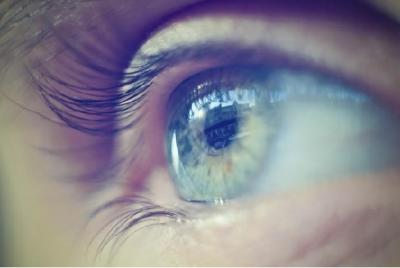Boston researchers have successfully regrown human corneal tissue – a feat that could potentially restore vision in the blind. The achievement also marks one of the first times that scientists have constructed tissue using adult-derived human stem cells.
Researchers reveal the key to the study’s success revolves around a molecule known as ABCB5, which serves as a biomarker for hard-to-find limbal stem cells. Residing in the eye’s limbus – the border of the cornea and the whites of the eye – the limbal stem cells are responsible for maintaining and recreating corneal tissue. Because of their regenerative ability, scientists have long hoped to harness these stem cells for regrowing human tissue in those with blindness due to corneal injury or disease. The problem why previously there weren‘t any studies is that is hard to find and isolate limbal stem cells.
Researcher Dr. Frank’s lab originally discovered the crucial ABCB5 molecule over 10 years ago, finding that it was present in skin and intestine precursor cells. But more recently, his team revealed that ABCB5 was also an important component of the eye’s limbal stem cells, preventing them from undergoing apoptosis (cell death). To further prove ABCB5’s role in the eye, Frank and his team created two groups of mice – ones lacking a functional ABCB5 gene and ones with a fully functioning ABCB5 gene. The mice lacking ABCB5 lost their population of limbal stem cells and were unable to repair injuries to their corneas.
When the benefits of ABCB5 molecule were understood, researchers become able to enrich, isolate and transplant it. Using the corneal tissue from deceased human donors, the researchers were able to locate the limbal stem cells using antibodies that bind to ABCB5. Once they identified the stem cells, they extracted them from the donor tissue and transplanted them into mice whose limbal stem cells had been removed. As expected, fully normal human-derived corneal tissue was generated in the mice – allowing them to see once again.
For various eye diseases (glaucoma, blindness, macular degeneration) adult stem cells, such as bone marrow or umbilical cord, are also used. Although it is start of stem cell researches, swing, its adaptability in the diseases treatment of diseases is growing rapidly.
Source:
- http://www.sciencedaily.com/releases/2014/07/140702131744.htm
- http://www.foxnews.com/health/2014/07/02/researchers-successfully-regrow-corneas-using-adult-human-stem-cells/
- http://www.sciencedaily.com/releases/2014/07/140702131744.htm 2. http://www.foxnews.com/health/2014/07/02/researchers-successfully-regrow... 3. http://medicalxpress.com/news/2014-07-scientists-screen-stem-cells-corneal.html">http://medicalxpress.com/news/2014-07-scientists-screen-stem-cells-corneal.html

 Researchers regrow corneas using adult human stem cells
Researchers regrow corneas using adult human stem cells